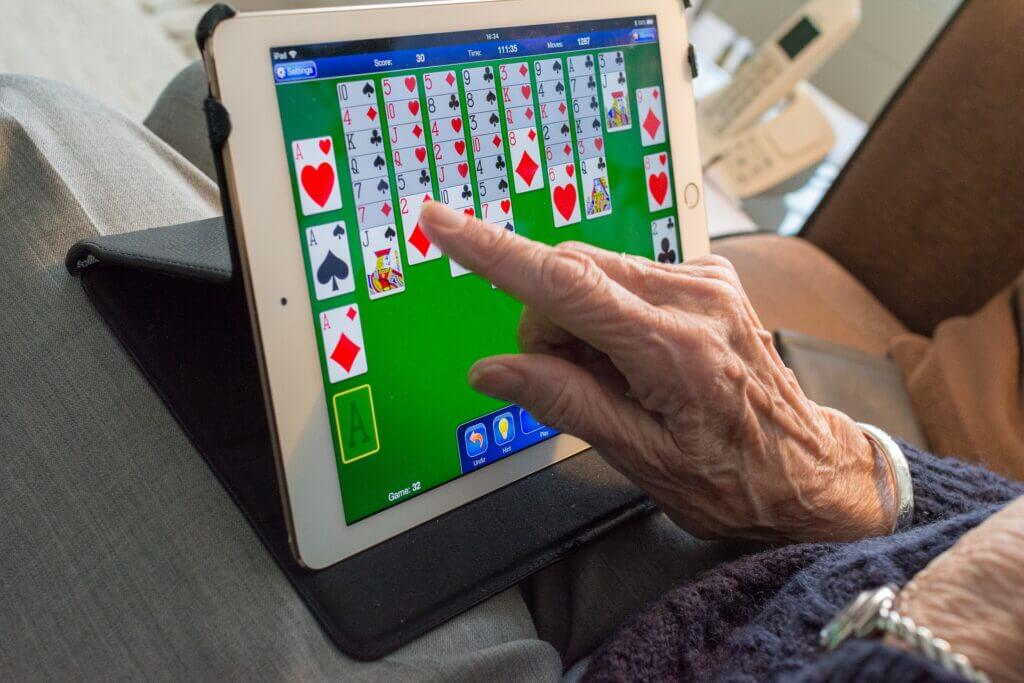Technology is everywhere, and it is becoming increasingly important for everyone — even those hesitant to change — to embrace that reality. Financial institutions, grocery stores, gas stations, hospitals, and vehicles are now more computer literate and dependent than ever before, meaning daily life now demands some interaction with technology.
Reluctance to change is normal; there is a natural fear or discomfort with adaptation, especially as people age. However, according to recent polling, more seniors, age 65 or above, are embracing the technology boom; 89% read and exchange email, and 62% look for news online, with 34% doing so daily.
Even with growing numbers, 25% of seniors over 65 never go online. What is the hesitance with seniors and technology? The answer lies between feelings of inadequacy, technological complexity, and a lack of sufficient instruction and support.
Despite the growing support for older individuals and great strides in better tech for seniors, a select group holds on to preconceived notions about the complexity and inefficiency of technology. Unfortunately, this presents a significant disadvantage to the age group because technology can offer several advantages to the aging population, especially in terms of social interactions, safety, health, entertainment, and convenience.
Ending Loneliness and Isolation
According to a report from the National Academies of Sciences, Engineering, and Medicine, nearly 25% of individuals 65 and older fall into the category of socially isolated. This estimate is startling and unfortunate, as the adverse effects of social isolation, including increased risk of mortality, can stem from legitimate and perceived loneliness.
Technology can curb the disturbing loneliness trend. It is easier than ever to communicate with friends and family face-to-face through phone apps. Although in-person communication is best, seeing a friendly face and knowing someone cares can be just as beneficial, especially when physical interactions are difficult to have.
Only a Button Press Away From Safety and Health
Technology offers so many alternatives and opportunities to improve the health and well-being of aging populations. Fitness trackers provide critical insights into movement, sleep, and exercise requirements for individuals according to gender, weight, and age. GPS capabilities provide confidence in the whereabouts of seniors with Alzheimer’s or dementia. Medical alert devices prevent potentially catastrophic outcomes.
Seniors need to understand the technology most beneficial to them to take advantage of it. With proper instruction, even the most technologically challenged individuals can find the usefulness and purpose of smart devices, meaning they can receive the potentially life-saving or life-altering support they need.
Providing Unbridled Entertainment for an Active Mind
Technology is not only good for binge-watching the next great series; it is also good for keeping your mind active. Boredom can lead to feelings of isolation or anxiety, but it can also signal a need for entertainment or mental challenges.
It is no secret that with age comes physical and mental decline. While there is no telling how limited or severe the decline might be, as it is based on the individual, the inevitable is enough to consider preventatives.
Thankfully, technology allows seniors to challenge their minds and contribute to knowledge. You can download books, puzzles, games, and several other beneficial applications. One frustrating experience is forgetting important dates, to-do items, and errands to run. These experiences are often amplified with age, even when they are no worse than when a person was younger. Using calendars, notifications, or other reminder apps can prevent any frustration that might arise from these experiences.
Eliminating the Struggle for Independence
Adulthood is bookended with independence — the ability to care for oneself completely, without aid or support. Regardless of the debate over interdependence, the perception of independence in the individual matters. Seniors often feel a lack of control over their lives as it becomes obvious they can no longer handle essential tasks alone: driving, grocery shopping, cooking, etc. When feeling an increased need for dependence or viewing uninvited help as excessive, an older individual can become depressed, leading to increased risks of several health conditions.
Technology, again, can help. Through online ordering and ridesharing apps, it is possible for an older person to perform essential tasks with the assumption of independence. They can shop for groceries, have meals delivered, and schedule appointments online.
Technology is an excellent tool, and when seniors are given the opportunity to learn how to use it, it can lead to significant boosts in confidence, social interactions, and safety. If you would like more information about the benefits of technology for seniors or are curious about advantageous living arrangements, contact Caring Places Management.

